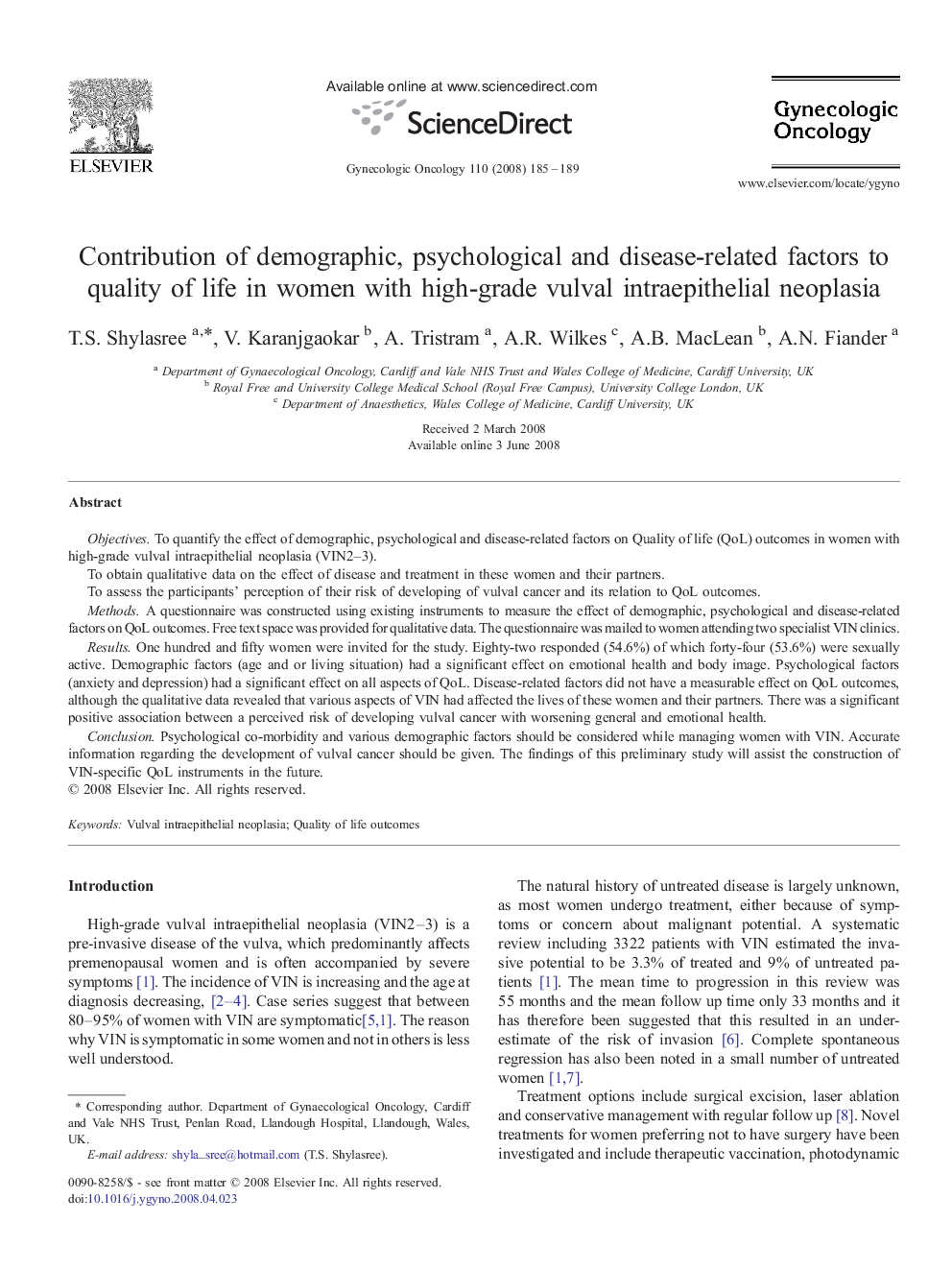| Article ID | Journal | Published Year | Pages | File Type |
|---|---|---|---|---|
| 3946060 | Gynecologic Oncology | 2008 | 5 Pages |
ObjectivesTo quantify the effect of demographic, psychological and disease-related factors on Quality of life (QoL) outcomes in women with high-grade vulval intraepithelial neoplasia (VIN2–3).To obtain qualitative data on the effect of disease and treatment in these women and their partners.To assess the participants' perception of their risk of developing of vulval cancer and its relation to QoL outcomes.MethodsA questionnaire was constructed using existing instruments to measure the effect of demographic, psychological and disease-related factors on QoL outcomes. Free text space was provided for qualitative data. The questionnaire was mailed to women attending two specialist VIN clinics.ResultsOne hundred and fifty women were invited for the study. Eighty-two responded (54.6%) of which forty-four (53.6%) were sexually active. Demographic factors (age and or living situation) had a significant effect on emotional health and body image. Psychological factors (anxiety and depression) had a significant effect on all aspects of QoL. Disease-related factors did not have a measurable effect on QoL outcomes, although the qualitative data revealed that various aspects of VIN had affected the lives of these women and their partners. There was a significant positive association between a perceived risk of developing vulval cancer with worsening general and emotional health.ConclusionPsychological co-morbidity and various demographic factors should be considered while managing women with VIN. Accurate information regarding the development of vulval cancer should be given. The findings of this preliminary study will assist the construction of VIN-specific QoL instruments in the future.
